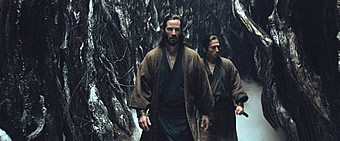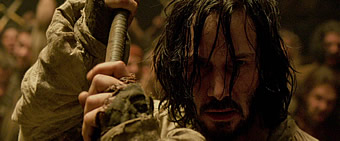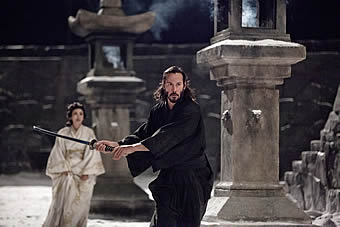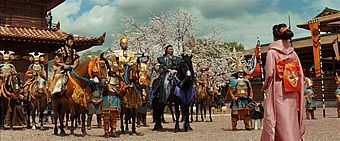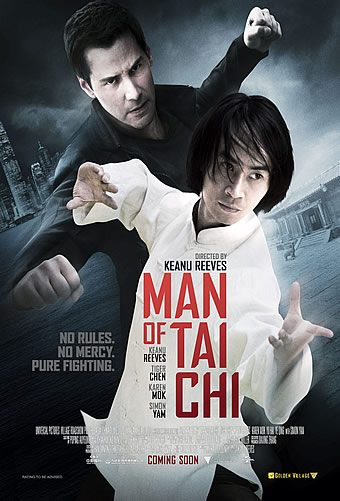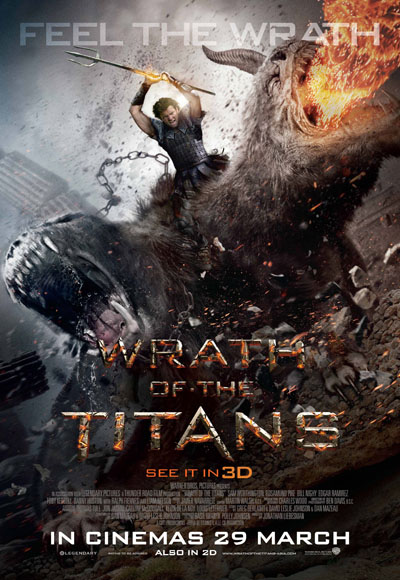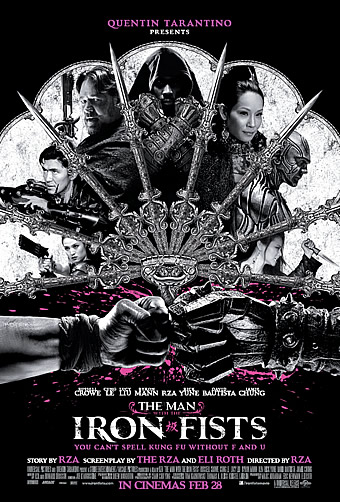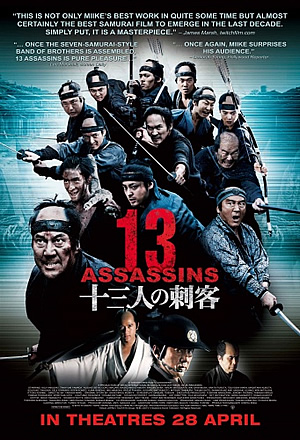47 RONIN (2013)
Genre: Action/Fantasy/Adventure
Director: Carl Rinsch
Cast: Keanu Reeves, Hiroyuki Sanada, Ko Shibasaki, Tadanobu Asano, Rinko Kikuchi, Cary-Hiroyuki Tagawa, Takato Yonemoto, Hiroshi Sogabe, Jin Akanishi
RunTime: 1 hr 59 mins
Rating: PG13 (Violence)
Released By: UIP
Official Website: http://47ronin.jp/
Opening Day: 19 December 2013
Synopsis: From ancient Japan’s most enduring tale, the epic 3D fantasy-adventure 47 Ronin is born. Keanu Reeves leads the cast as Kai, an outcast who joins Oishi (Hiroyuki Sanada), the leader of the 47 Ronin. Together they seek vengeance upon the treacherous overlord who killed their master and banished their kind. To restore honor to their homeland, the warriors embark upon a quest that challenges them with a series of trials that would destroy ordinary warriors.
Movie Review:
Hollywood’s fascination with the way of the samurai continues with the latest East-West hodgepodge ’47 Ronin’, based on the Japanese legend of 47 brave warriors who went against the explicit orders of their Emperor to avenge the wrongful death of their master and later went on to sacrifice their lives in strict adherence to the code of the ‘Bushido’. As the end credits will inform you, it is an occasion celebrated by thousands of Japanese till today on the 14th of December, but the fact that the Japanese themselves rejected this retelling of that story should be fair warning just how much credit to give it.
To say that it is uninspired is pretty much an understatement, as commercials director Carl Rinsch betrays his lack of feature filmmaking experience with a tonally deaf movie that fails to engage on so many levels. The fault isn’t entirely his; right from the start, one already senses something amiss in Chris Morgan and Hossein Amini’s script. Venerable screenwriters though both are (Morgan’s written one of our most favoured movies this year, ‘Rush’), it is too obvious from the prologue alone that both are straining too hard for the movie to be taken seriously - and the reason for that becomes apparent just a short while later.
It doesn’t take a history scholar to enlighten you that Keanu Reeves’ character is entirely fictional. A half-British, half-Japanese orphan named Kai who is taken in by the respected Lord Asano (Min Tanaka), its addition has no other purpose than to make the story more palatable for a Western audience. Indeed, short of being ostracised and called a ‘half-breed’, Kai spends most of his time moping around like most other characters Reeves does, so much so that you probably won’t lose much if Kai had been swapped with a fully Japanese character as the legend must have gone.
That’s the equivalent of what happens during the course of the movie in fact. While it does seem as if Kai were the centre of the storytelling, Japanese actor Hiroyuki Sanada’s stoic Oishi gradually but surely becomes the subject of the writers’ interest and attention. As Lord Asano’s son, Oishi grows into the leader of the resistance against Lord Kira (Tadanobu Asano), who had dispatched his shape and form-shifting witch Mizuki (Rinko Kikuchi) to do his dirty work in framing Asano for his own attempted murder.
It is Oishi who will lead the titular warriors - including Kai - in a sneak attack against Kira and whose inner emotional struggles, especially in knowingly leading his band of men to sure and certain death whether at Kira’s hands or that of the Emperor, seems much more engaging than that of an outsider (which we may emphasise again was never part of the true story anyways) struggling to fit in. But even with choosing to place the emphasis on Oishi, the characterisation here for what should be a character-driven tale of heroism and sacrifice is too weak - and it certainly doesn’t help that the lines the characters are given are either stilted or cringe-worthy or both.
On his part, Rinsch does manage some nicely done action sequences. Oishi’s ambush of Kira in his own kingdom towards the end is one, boasting of a nice buildup as the former’s men stealthily take up key positions from which to spring their surprise on the enemy. That climax also culminates in Kai’s showdown with Mizuki at the same time as Oishi’s pursuit of Kira, and the intercutting between the two makes for a pretty exciting time. Rinsch’s eye for good visuals is also plainly evident here; unfortunately the same can also be said of his poor grasp of pacing and tone.
As if unsure whether to go all out to make a B-action movie or to attempt something more self-respectable, Rinsch ends up with a product that is neither weighty enough to be taken seriously (can you imagine Kai or Mizuki as the real deal?) nor weird and wonderful enough to be nothing more than an elaborate CGI Hollywood fantasy in and of itself. There is no hiding the fact that Rinsch tries too hard for the former, engineering not only unintentional moments of levity but rendering purposeful ones - like one where Kai demonstrates to one of his fellow ronin the difference between a sharp and blunt blade in slicing through wood - out of place with the rest of the movie.
The same can be said of Reeves, who sticks out like a sore thumb next to the rest of the Japanese cast. It is both his character as well as the actor himself, the latter’s trademark stone-faced act largely incompatible with the minimalist and nuanced acting of his Eastern counterparts. In contrast, Sanada shines in the role of Oishi, portraying with clarity and poignancy the dilemma his character faces in choosing the path that disobeys the Shogun and ultimately casts him, his men and their family into disrepute. Not one of the rest of the cast is given much opportunity to act though, and even Kikuchi is wasted in the role of a fox spirit that well calls her to be foxy and little more.
And so despite its good intentions of illuminating the way of the samurai to the world, Hollywood once again fumbles with its Westernised take of what has been and perhaps will always remain a fundamentally Asian story best told by its own people. Except for big-budget spectacle, there is hardly any merit to this fantastical retelling of the honour and bravery displayed by the legendary ’47 ronin’. It’s no wonder then that the Japanese have patently rejected this Hollywood bastardisation, and unless you are prepared to be culturally blind, you’re most likely to do likewise.
Movie Rating:


(Yet another failed Hollywood attempt at a 'samurai' movie, this hodgepodge of legend and fantasy is a culturally blind product that provides for big-budget spectacle and little more)
Review by Gabriel Chong
You might also like:
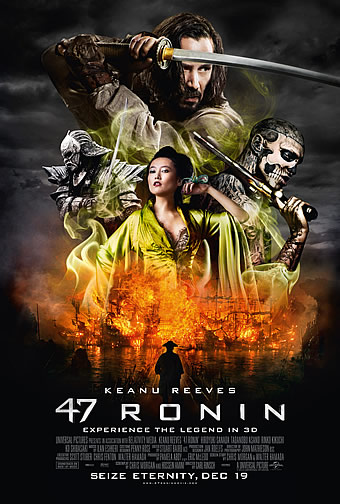
Movie Stills
